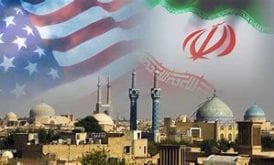Iran’s Parliament (Majles) has discussed four regulatory bills at a closed-door session also attended by “a few senior security and executive officials” on Sunday May 20.
MPs have disclosed that the discussions at the session evolved around international requirements against money laundering demanded from Iran, and that there have also been negotiations in this regard with the office of Supreme Leader Ayatollah Ali Khamenei.
The Financial Action Task Force (FATF), a G-7 initiative to combat money laundering and financing terrorism has placed Iran beside North Korea at the top of the list of countries with the highest economic and financial risks.
Media reports have said that Foreign Minister Mohammad Javad Zarif, Supreme National Security Council Chief Ali Shamkhani, Abbas Araqchi the Foreign Ministry official in charge of the JCPOA and Economy Minister Massoud Karbasian were among the officials taking part in the Sunday meeting.
Hardliners close to Khamenei’s office have criticized the four bills presented to the parliament by President Hassan Rouhani’s administration, fearing that passing these bills would pave the way for Tehran to join the FATF and make financial assistance to terrorist groups in the Middle East difficult.
The four bills include measures to join the convention against organized crime, to amend “the anti-money laundering law,” to accept the convention against financial support for terrorism” and a “bill to amend the law against financial support for terrorism.”
Iranian Parliament’s news agency ICANA has quoted Shamkhani, as saying that “the four bills have nothing to do with FATF.”
However, Majles Presidium Spokesman Behrouz Nemati has said that “The bills may somehow be related to FATF.”
During recent months Iranian economic analysts living abroad have charged that Iran’s hardliners oppose joining the FATF because it will make money laundering hard for financial institutions linked to the Islamic Revolution Guards Corps (IRGC).
Tehran MP Ali Motahari has told reporters in Tehran that there have been “long and seriously confrontational” debates during Sunday’s Majles session.
Motahari quoted Shamkhani as saying that there were problems about the bill, but they were solved thanks to cooperation between the Majles Research Center, the Supreme National Security Council and Khamenei’s office.
The Rouhani administration says the bills are aimed at introducing “transparency and discipline into banking operations” and bringing about “compliance with international banking regulations.”
Rouhani’s opponents including members of the ultraconservative Paydari Party oppose the bills and insist that passing those bills is tantamount to accepting the terms of FATF.
Iran’s hardliners believe that the FATF would prevent Iran from sending money to Hamas and the Lebanese Hezballah.
Hamas is listed as a terrorist group in Canada, US, and Israel and the EU recognizes its military wing as a terrorist group.
The Lebanese Hezballah is also listed as a terrorist group by US, Holland, the Arab League and Israel, while the EU recognizes its military wing as a terrorist group.
Both groups have repeatedly confirmed receiving money and military equipment from the Islamic Republic of Iran.
In March 2018, Iran’s President Hassan Rouhani called on Iranian banks to comply with international regulations in order to evade being blacklisted.
In an apparent reference to the requirements of FATF and UNTOC, he advised the banks that “abiding by these regulations, you can distance yourself from the black list.”
Rouhani was referring to the Financial Action Task Force (FATF) black list and regulations recommended by the UN Convention against Transnational Organized Crime (UNTOC).
 Shabtabnews In this dark night, I have lost my way – Arise from a corner, oh you the star of guidance.
Shabtabnews In this dark night, I have lost my way – Arise from a corner, oh you the star of guidance.


